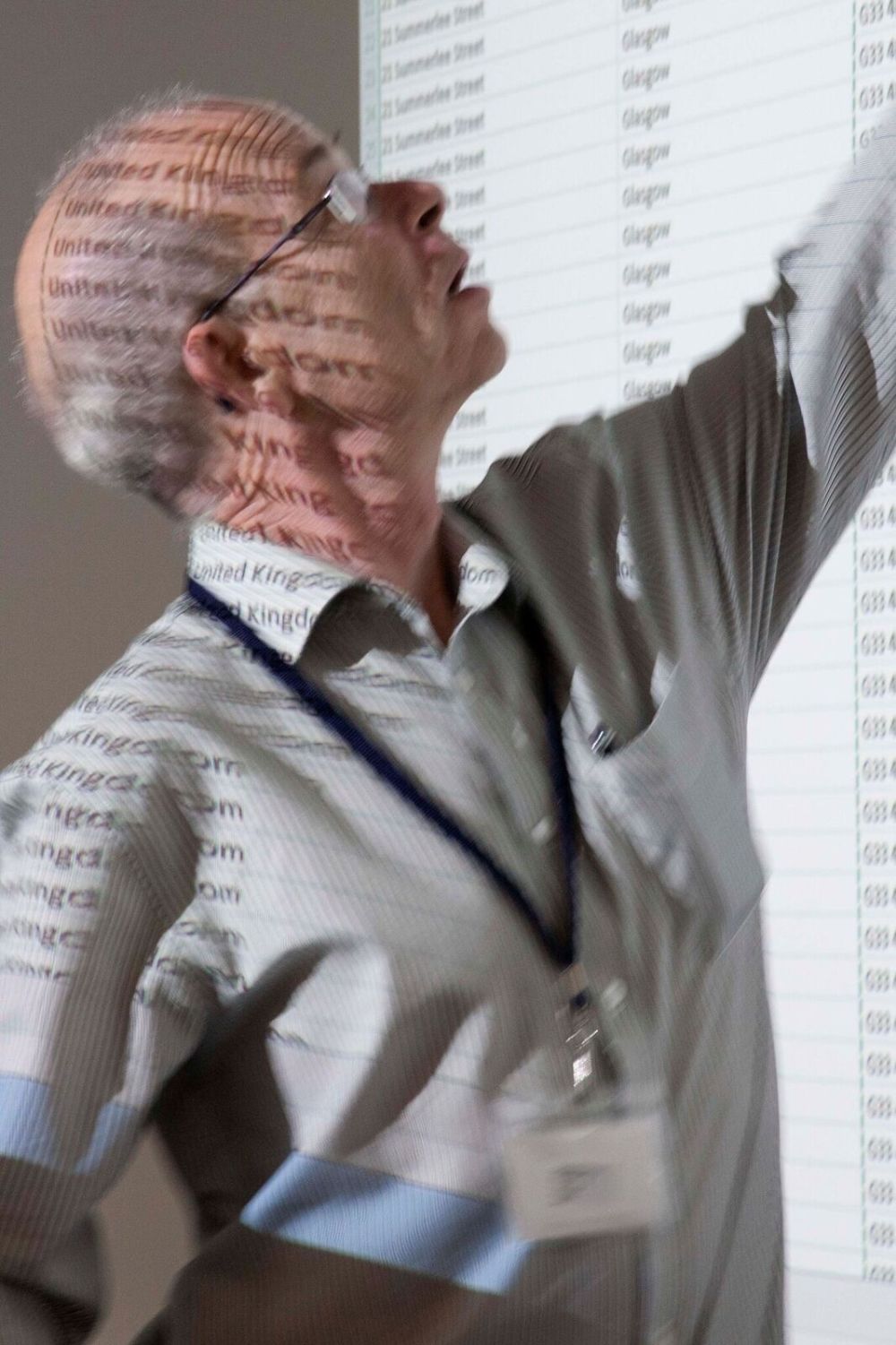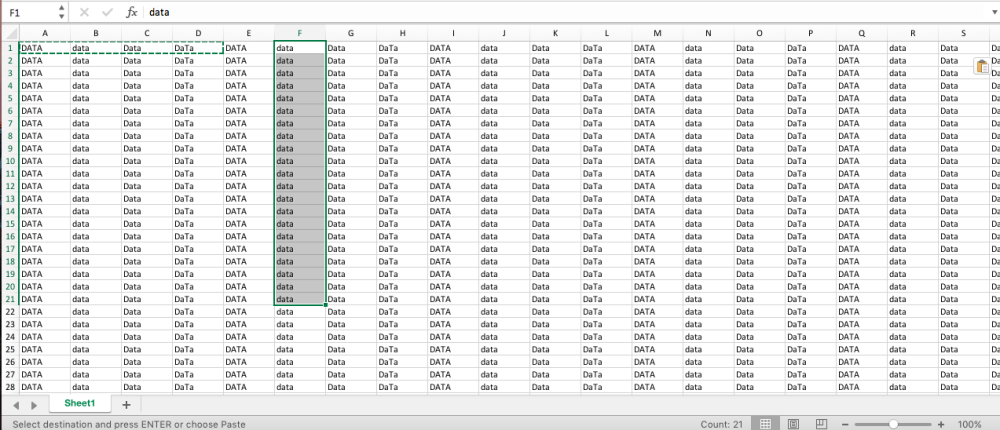
Want to learn how to 'talk with data'?
We’re starting conversations about data with our new course Communicating with Data – led by ex BBC World Service Head of Training Jonathan Stoneman. With his wealth of knowledge he is here to give insight into the use, opportunities and insights data can offer to you and your business, no matter what sector you work within.
It’s important to mention that in almost all walks of life we will generate data of some kind. Jonathan told us,“it’s vital to be able to ‘talk’ to it – otherwise you leave yourself in the hands of the ‘nerds’ who know what they’re doing, but that crucially, aren’t you, with your questions and interests.”
Jonathan is well travelled noting, “I recently counted how many countries I’ve been to over the years – I make it 53 (not counting Sweden, where I changed planes once and never left the airport!)”. He also lived in 5 differing countries as part of his previous work prior to going freelance. An avid creative and experimental soul, Jonathan talks to us about his longstanding career and personal interests which have led to an interest in ‘the learning more than the doing’.
So, Jonathan tell us about yourself?
I was born in London, lived in York during most of my school years, moved around a lot as an adult. I’ve lived in Le Mans, Warsaw, Budapest, and Zagreb. Personally, I love music – I’ve played the French Horn since school and never stopped. I read a lot, and I like learning new things. I learned to be a glider pilot a few years ago and flew my own glider for a while. It was the learning more than the doing which interested me, I think.
You’ve had a fantastic career so far, working for industry leaders across the world...
Yes, I’ve had a varied career; I’m not sure you can even call it a career – it makes sense looking back, but wasn’t as obvious at the time of some of the moves.
I loved languages, so did a French degree at Kings College London in order to spend time in France. I didn’t have a strong view on what I wanted to do, so didn’t prepare for work until it was a bit late, frankly. After I graduated I spent a couple of years working in a university library, and tried to join various institutions’ graduate schemes.
In the end I got a job in the Foreign Office, where I stayed for 8 years. During that time I had two postings to Poland and Hungary. Hungary was especially interesting as the Cold War was coming to an end, and a lot of the big changes began there. I even met the current Hungarian PM at an Embassy party when he was a student who was getting into one of the new political parties that were starting up then.
So what encouraged your career in data communications?
In 1990 I left the FCO and joined the BBC. After a couple of years as a researcher I moved to World Service where I spent the rest of my career. I did a lot of reporting and was on air quite a bit before becoming a manager, first of Macedonian programmes, then Croatian. I finished up as Head of Training at World Service.
I went freelance as a trainer in 2010, and after a year of delivering various courses I started teaching people the basics of spreadsheets as a way of finding stories. From then on, I have specialised almost entirely in data journalism, and, I suppose, data science – the art of getting useful and interesting information out of rows and columns of data.
You’ll be joining us to lead the Communicating with Data course…Tell us about the benefits of knowing how to communicate with data?
“Communicating with Data” is a deliberately ambiguous phrase. The communication is 2-way: first you have to be able to ask the data questions and get meaningful answers. When you have those, you have to communicate them to others – with words, graphics, or often by digging further into what you’ve found, perhaps bringing in other data to put flesh on the bones of your discovery.
There’s so much data around these days, lots of it published by governments and big NGOs, that it’s important to be able to know how to interrogate it and find out what’s really going on. There’s so much available there need to be more people able to communicate with it – in both directions.
So, give us the top three uses of communication for data skills in workplaces?
Most walks of life generate data of some kind, and it’s vital to be able to “talk” to it – otherwise you leave yourself in the hands of the nerds who know what they’re doing, but aren’t you, with your questions and interests. If your workplace generates data – which it probably does, you need to know how to communicate with it: you will find new insights about your customers, your business, your users, whoever the data is about.
If a picture is worth a thousand words, so is a good data graphic. It can say so much. You need to know how to do them and do them well. There are some useful principles to learn, and lots of smart, free, tools to help you make your data visible.
Finally, in a world of “fake news” – it’s often worth interrogating the relevant data to find out what’s really going on; even a fairly basic understanding of data will give you that ability.
What do you hope students gain from the course – How can this help people in terms of professional development? What sectors would gain from the usage of this knowledge?
I don’t think there are many sectors where data isn’t relevant, or available, so I can’t think of a sector which wouldn’t benefit from knowing how to talk to data, and how to communicate their findings to others – colleagues, customers, the public at large. So the course will teach people how to find data on the web, how to prepare it for analysis, how to ask it questions, and how to turn the answers to those questions into something – often a graphic – which can communicate those answers to others.
The course covers the what the possibilities are for data communications – tell us more about that...
I think I can only quote something The Economist wrote back in 2015 – they asked why the “open data revolution” had had only limited success. They concluded that a lot of the data published was “useless, and hard to navigate”. And, most importantly in my view, they said people lacked the skills to deal with it. We trainers can put that right: we need to show others how to navigate open data to find the good stuff, and they need to know what to do with it once they’ve found it. If enough people learn enough about data to make good use of the good stuff, governments will start to understand what’s useful, and what’s a waste of time! And finally, communicating with data is not rocket science, it’s really good fun, and everyone should know how to “talk to data”.

